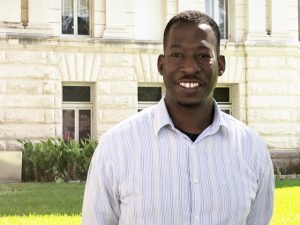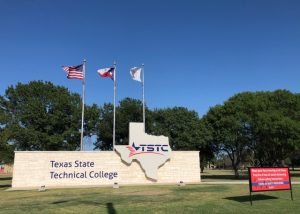(HARLINGEN, Texas) – As students gear up to start classes this fall, Texas State Technical College has been diligently planning and preparing for a new way of learning.
The coronavirus has very quickly changed the way we go about our daily lives, a change that has also had an impact on how TSTC distributes curriculum. While student safety remains a top priority, the quality of education was also an aspect carefully taken into consideration when making the progression to distance learning and the changes to labs and housing.
“TSTC has transitioned their training programs to either completely online or hybrid modality,” said Harlingen Provost Cledia Hernandez. “Each program did a thorough assessment and analysis of the program’s skills and either adopted an online platform to assess student skills or modified their on-campus lab to allow students to complete their hands-on skills on campus.”
Adjustments were also extended to programs that require on-campus labs.
“Lab layouts were reconfigured to account for physical distancing while in the lab,” Hernandez explained. “Additionally, students scheduled time slots throughout the week to come into the lab to minimize the group size. Technology was also integrated into labs to help instructors facilitate instruction and feedback while still complying with physical distancing requirements.”
The campus has taken all necessary precautions to comply with the Centers for Disease Control and Prevention (CDC) guidelines for students who need to visit campus to complete required lab work.
“All students are required to wear face coverings while at TSTC,” Hernandez said. “In some programs, based on the skills being performed, additional personal protective equipment is required to help maintain safety.”
Surgical Technology instructor Yolanda Ramirez reiterated that student safety was a top priority when configuring the new ways in which labs will be conducted.
“The skills will be taught via Webex through both pre-recorded and live stream sessions,” she said. “We have been recording various skills videos, as well as instrument videos that students are required to learn. All of these will be covered during our Webex class sessions, so we will also be available in real time to answer any questions that students may have.”
Efforts have also been made to ensure that student housing follows strict safety protocols once students move into their dorms later this month.
“TSTC Housing has worked to de-densify residences to the best of their ability,” said Director of Housing Lorena Garza. “For that matter, TSTC Housing is only offering a single occupancy option for residents at this time. Non-resident guests are not allowed in the housing complex, and current residents are required to wear a face covering or mask at all times outside of their residences while in the housing complex.”
Additionally, TSTC has also taken measures to ensure that quality hands-on learning is upheld because it is one of the school’s most vital components.
Hernandez said that students can still access all the same services, just in a different way.
“Tutors, library services, veteran services, and enrollment coaches can all be reached through various digital platforms.”
Emily Mancini, who recently completed her Associate of Applied Science degree in Biomedical Equipment Technology online, reiterated that the efforts made at TSTC through remote learning were just as beneficial despite students not being on campus.
“From the admissions office to counselors and coordinators, everyone was responsive and helpful with the many questions I had,” she said. “It was especially helpful since this was my first year doing online distance learning.”
The dedication of her instructors was especially appreciated.
“With each semester, I felt the instructors were open to questions and discussions to help make the online distance learning as manageable as possible for the students,” she said. “I had email correspondence with each of my professors, and they all replied promptly and helped with any concerns I had.”
Fall registration is currently underway. For more information about TSTC’s online programs, visit https://www.tstc.edu/tstconline.





